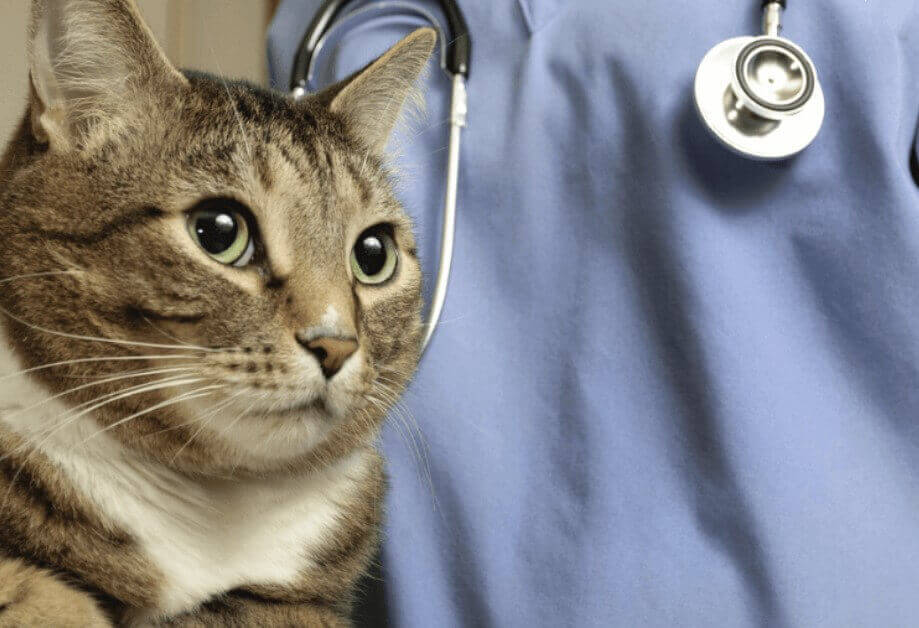
Best Kitten Insurance Companies of 2025
There’s no denying that kittens have a lot to offer, including joy, companionship, and unconditional love.
Read MoreMost pet insurance plans exclude prescription food, but some top insurers offer coverage through wellness add-ons when the diet treats a covered medical condition. Here's what you need to know.
June 12, 2025
The answer depends on your insurance company and the specific policy you have. Our best pet insurance companies offer varying levels of coverage for therapeutic diets, with different requirements and limitations.
Let's explore which insurers cover prescription food and what you need to know to get reimbursed.
Also known as therapeutic or veterinary food, prescription pet food is specifically formulated to help pets manage certain medical conditions, such as allergies, diabetes, kidney disease, GI issues, or intolerances.
Some of the most common examples of prescription dog and cat food include Purina Pro Plan Veterinarian, Hill’s Science Direct, Wysong, and Royal Canin.
"Unlike standard pet food, prescription pet food is developed with precise ingredients, nutrient levels, and formulations that target pet health issues. Veterinarians often recommend it as part of a treatment plan and require a prescription to ensure they are used appropriately for a pet's condition," says Dr. Nichole Aldrich, veterinarian at Lovet Pet Health Care.
Fortunately, several reputable pet insurance providers include prescription food in their plans. Here’s an overview of our top options:
ASPCA Pet Health will cover prescription diets in its standard plans as long as they’re prescribed to treat a covered accident or illness. Keep in mind that the insurer will deny your claim if the food is used for weight loss or general health maintenance.
Pumpkin may pay for prescription food that’s used to treat eligible accidents or illnesses. You can expect a high reimbursement rate of 80% or 90%, along with annual limits ranging from $5,000 to unlimited.
Spot will reimburse you for the cost of prescription food, up to the limits outlined in your policy. The drawback is that the food must be used to treat a covered condition. Spot won’t cover prescription food if it’s intended for weight management or general health maintenance.
Trupanion plans include prescription pet foods prescribed by a licensed veterinarian to treat a covered illness or injury. The insurance company will reimburse 50% of its cost, minus your deductible. However, it'll only cover up to two months' worth of food.
Embrace will only reimburse you for prescription food if you invest in its optional Wellness Rewards plan, unless your vet prescribes a special diet to treat your cat’s hyperthyroidism. Wellness Rewards might be worth the extra money, as it also includes routine care services like wellness exams and vaccines.
With Figo, you can collect reimbursement for prescription food with an optional “Powerup.” The pet insurance company will pay for vet exam fees and up to $250 per policy term if your vet prescribes a prescription diet for an eligible illness.
These tips can help make prescription food more affordable for your furry friend:
Not all prescription pet food costs the same everywhere. “Look at trusted online pet pharmacies and retailers. Sometimes prescription diets are more affordable online than in-clinic,” explains Amber Batteiger, PR and communications manager at Embrace.
Many pet food brands offer rebate programs, coupons, or frequent buyer perks through vet clinics or online stores. “Hill's Science Diet, for example, has a 'Sign Up and Save' program that offers a discount on the first purchase and email updates on coupons and rebates throughout the year,” says Dr. Aldrich. Purina Pro Plan and Royal Canin typically provide discount options as well.
“A large percentage of promotions and coupons are routed through retailers of the products. PetSmart and Petco are two examples,” explains Dr. Aldrich. Keep an eye out for discounts or coupons that are published on their websites and tend to change regularly.
By purchasing larger bags or cases of prescription pet food, you can often reduce the per-meal cost. Check out retailers like Costco or Sam’s Club as they may offer the food your pet needs at a better rate than if you were to buy a few bags or cases at a time.
“In some cases, there may be comparable but less expensive alternatives to a recommended diet,” explains Batteiger. If prescription pet food is out of your budget and your pet insurance company won’t cover it, don’t be afraid to ask your vet for other options.
Some nonprofit groups and shelters offer temporary food assistance for pet parents struggling with cost, especially if the food is medically necessary. “The Science Diet's Shelter program has some discounts on prescription diets for qualified parties,” says Dr. Aldrich.
Pet insurance coverage for prescription food is limited but available through select insurers like Embrace and Nationwide. Since most companies exclude this benefit or require optional wellness plans, compare pet insurance policies carefully if your pet needs therapeutic diets.
Remember to explore manufacturer discounts, bulk purchasing, and assistance programs to reduce costs regardless of your insurance coverage.
Does Lemonade pet insurance cover prescription food?
No, Lemonade does not include prescription food in its pet insurance plans. You'll need to look for coverage through another pet insurance company or cover these costs out of pocket.
Does Embrace pet insurance cover prescription food?
Yes, Embrace helps pay for prescription food through its Wellness Rewards program. This is an optional add-on that can reimburse you for prescription food as long as it's used to treat a covered condition.
Does Nationwide pet insurance cover prescription food?
Yes, Nationwide does help pay for prescription pet food under some plans. You can expect coverage for it with a Whole Pet or My Pet Protection plan.

There’s no denying that kittens have a lot to offer, including joy, companionship, and unconditional love.
Read More
No matter the age of your furry friend, it’s your job to keep them happy and healthy.
Read More
If you want to keep your pet healthy and happy without breaking the bank, you might be in the market for cheap pet insurance.
Read MoreAnna Baluch is an insurance and finance expert at BestMoney.com. She has written for Forbes, Newsweek, Credit Karma, CNN, and many other top publications. Drawing on her in-depth industry knowledge, Anna enjoys helping individuals and small business owners make smart financial decisions.